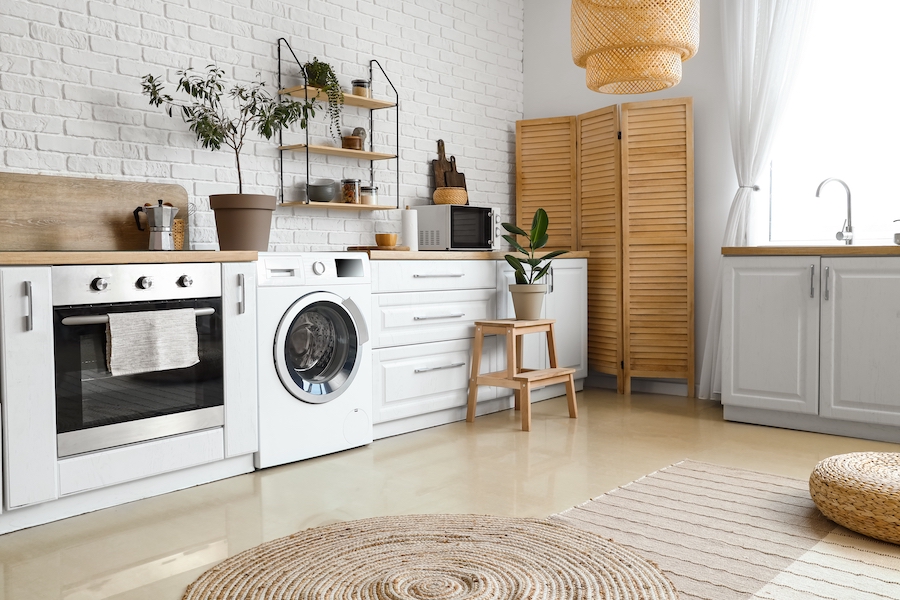 Battery Backup for Home Appliances: What Can a Solar Battery Power?
Battery Backup for Home Appliances: What Can a Solar Battery Power?
Solar panels with battery storage are a great way to keep your essentials running during a power outage, but if you want continuous, long-term backup power for your entire home, solar battery storage might not be your best option.
In this guide, we explain what home appliances a solar battery can power so you can decide whether battery storage is the right backup power source for your home.
Solar Batteries Power Essential Loads
You can power almost anything with solar battery storage. It’s even possible to power your entire house with residential solar panels and battery backup, but you will need multiple batteries to do so. Installing multiple solar batteries is expensive, so most homeowners choose to back up their essential loads instead of their entire home.
An essential load is anything you can’t live without during a power outage and they’re different for every household. Some of the most common essential loads include:
- Refrigerator
- Lights
- WiFi router
- Outlets for phone and laptop chargers
- Television
- Electric stovetop
- Microwave
- Electric fans
- Breathing machines
- Home dialysis equipment
- Power wheelchairs and scooters
- CPAP machines
Any small home appliance or electronic that will help you get through a power outage safely and comfortably is a good essential load. Larger appliances, like an air conditioner, can also be considered an essential load, but they take more power to start up. A solar battery can run an air conditioner, but a powerful inverter is needed to start the air conditioner, which adds to the complexity and cost of your solar battery system.
How Long Will a Solar Battery Power Your Essential Loads?
Most solar batteries are powerful enough to run a handful of essential loads like a refrigerator, television, electric stove, and lights all at the same time. But for how long?
Your battery’s size determines how long it will last in a power outage. Solar battery sizes are typically referred to as “usable capacity,” which is the amount of power your battery can deploy, measured in kilowatt-hours (kWh).
There are many types of solar batteries and their sizes vary, but most have a usable capacity of about 10 kWh. Let’s put that into context.
Many homeowners consider their refrigerator the most important essential load because they don’t want all their food to go bad in an outage. Most residential refrigerators use between 300 to 800 watts of electricity, depending on size and efficiency. To play it safe, let’s assume your refrigerator is on the higher end and consumes 700 watts. Since they run about half the time, a 700 watt refrigerator will use 2.8 kWh of electricity in 8 hours (.7 x 8 x .5). This leaves you with an additional 7.2 kWh of stored electricity to use before your battery needs to be recharged. That’s enough power for a handful of additional loads like a couple of lights, a few hours of charging for your phone, and a few hours of watching TV.
TIP: You can calculate how many kWh an appliance uses with this formula: kWh = (watts × hrs) ÷ 1,000. Wattage is listed on the label of most home appliances.
Solar Batteries vs Generators
Solar battery storage is a great option if you want to keep a few essential loads on during a power outage. It’s also most likely your best option if you already have or plan to install solar panels as your solar panels will charge your battery with sunlight, eliminating the need for fuel. Solar with battery storage is the cleanest and most environmentally friendly way to backup your home.
If you want long-term whole-home backup power, you will most likely be better off with a standby generator. Generators run on fossil fuel, which is a factor to consider, but they can also provide continuous power to your entire home because they don’t need sunlight to recharge the way solar batteries do. Generators are typically more affordable to install than solar batteries, but they have ongoing fuel and maintenance costs that batteries do not.
Find the Right Backup Power Source for Your Home
SouthFace Solar & Electric installs residential solar battery storage systems and whole-home backup generators. Our goal is to provide the best energy storage solution for you and we will help you compare your options based on your specific backup power needs. We’ve been in business since 2008 and are one of the most experienced local Arizona solar installers. We put our customers first and deliver custom energy solutions designed to make your life easier and more comfortable!





